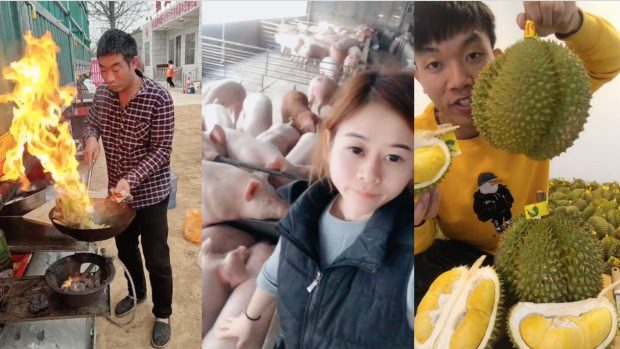
Chinese grassroots rise to stardom thanks to video-sharing platforms
False eyelashes, airbrushed fashion feeds, or glittering skylines of metropolises can be what you may frequently see in the pop-up tweets on live-streaming or short video sharing platforms. However, they do not have any merits for a swarthy-cheeked truck driver who has to frequently bear 3-day starvation while driving long distance in mountainous regions of China. Brother Bao is one of those truck drivers and the tanned-skin man has garnered over 2.48 million followers in less than 2 years on one of the most widely-used Chinese video-sharing apps Kuaishou(TikTok).
Brother Bao’s rise is never legendary on his own. Away from China’s cosmopolitan centers, a group of marginalized broadcast jockeys coming from China’s most underprivileged regions have been celebrating an ongoing live-streaming craze in China. “The wide deployment of technology infrastructure in China has lowered the cost in information dissemination particularly for thosewho live in impoverished areas in China, giving impetus for bringing vitality for live-streaming culture,” said Professor Liu Shouying from School of Economics at Renmin University of China, at a seminar on April 16 in Beijing. From a 23-year-old pineapple grower who showcases his daily harvest, to a pig breeder who live-streams pig-breeding tutorial, Chinese short video sharing platforms are also recording the lives of a substantial number of nobodies.
In order to make more people shine, some platforms, including Kuaishou, are also deploying different algorithms. “There is no celebrity promotions or sponsorship channels that seizes the online traffic of the ordinary live-streamers (on Kuaishou),” said Ma Hongbin, senior vice president of Kuaishou. “The algorithms are seldom catered to the trending topics or KOLs. Such ecology empowers the user like Brother Bao to stress his own words and reign over their own rules.”
Meanwhile, it’s never a mere eyeball business. This can be a down-to-earth economy when many undereducated and poor people from backlands of China try to brush some of the clear-cut edges of the unattainable tastes of most dazzling social media posts. It’s also like a virtual gold rush in contemporary China, as many of them have made a nice shot for fortune as well out of the stardom. Data revealed at the press conference showed that Kuaishou, for example, has assisted users from impoverished rural backgrounds in China generate $2.8 billion in revenue in 2018. Alang, as a young rural-based fruit grower in countryside of Xishuangbanna in Southwest China’s Yunnan, gained a boom of 300-million-yuan sales revenue by selling 50 million kilograms apples as of 2018 thanks to his livestreaming of fruit planting.
By Wang Yuan
(People’s Daily Overseas New Media)



